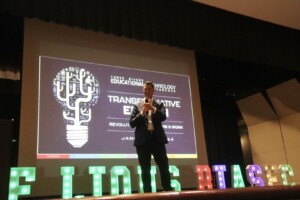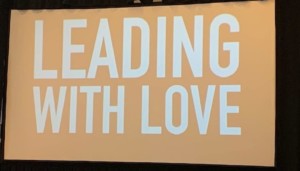Good Work: Conferences
The soul craves depth of reflection, many layers of meaning,
nuances without end, references and allusions and prefigurations.
-Thomas Moore
I usually don’t like conferences. I find that the best part of most conferences is the hallway chats. In fact, if I’m not speaking, I usually hang out in the lobby and catch up with friends that I should stay in touch with. Conferences today are mostly characterized by boring speeches, brain-numbing break out sessions and lousy snacks.
People often attend conferences because they feel an obligation to the organizing group, or so that they do not feel left out of the loop, or most often to get out of town for a few days. Symptomatic of a business culture that does not value reflection, conferences can be a poor excuse for reading a good book, spending time discussing important topics with colleagues, or sitting on the deck with a journal in your lap. Conferences and organizations should build in more reflection time, team-based projects and innovative sessions that don’t reflect an outdated classroom setting. We are pushing for alternative classrooms where students interact and the teacher doesn’t just simply present information. However, many of conferences still reflect a presenter or panel projecting at an audience.
With social media today, its possible to catch the best content and discussions online without paying the travel costs. Often the discussions online seem richer and more engaging than those happening in person at the conferences. Most conferences are even offering free streaming video of sessions. If you are in person and wondering what session to drop in the conference hashtag (ex: ISTE11) lets you get quick instant feedback and updates from other attendees. Tweet-ups at conferences allow you to finally meet your virtual friends who retweet your posts and like your Facebook statuses.
People talk about building learning organizations. It is easier said than done. The worst thing you can do is to go to a conference to find out how to be a learning organization and then send everyone to a new training session to tell them how to do their jobs. Instead, come back with some really good questions. Learning starts with modeling. People need to see you struggling with important questions and acknowledging that you are struggling and need their help. Learning organizations live in the important questions. They make time for conversations that add context, remind people of their core values, and ask the critical questions.
I’m hoping more conferences will become as innovative as some classrooms have become. Maybe School of One, Carpe Diem and Rocketship can advise conference planners on integrating fresh content into innovative sessions and workshops. This week I’m skipping ISTE and going to Hawaii to read, write and think with a few less of those ‘prefigurations’ that worried Thomas Moore.
[Good Work is a Sunday series that started as journal entries while serving as a public superintendent in the 90s]






0 Comments
Leave a Comment
Your email address will not be published. All fields are required.